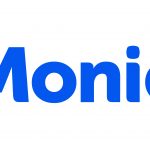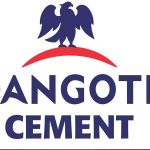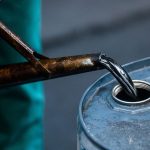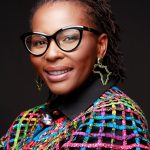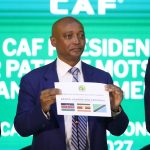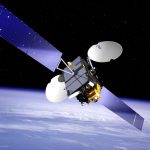General
Terrorist Attacks Reporting: SERAP Urges Buhari to Block NBC Directive
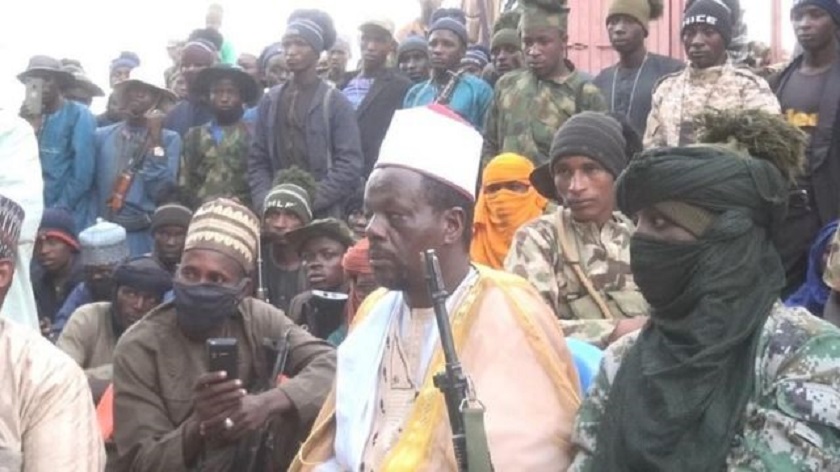
By Adedapo Adesanya
The Socio-Economic Rights and Accountability Project (SERAP) has sent an open letter to President Muhammadu Buhari, urging him to use his leadership position to withdraw the National Broadcasting Commission (NBC) policy banning journalists and broadcast stations from reporting details of terrorist attacks and victims across the country.
In a notice dated July 7, 2021, NBC issued a directive asking journalists, television and radio stations in Nigeria to stop “glamourizing and giving too many details on the nefarious activities of terrorists and kidnappers” during their daily newspaper reviews.
The directive, titled Newspaper Reviews And Current Affairs Programmes: A Need For Caution, was signed by the Director, Broadcast Monitoring, Mrs Francisca Aiyetan, on behalf of the new Director-General of the commission, Mr Balarabe Ilelah.
Reacting, SERAP called on Mr Buhari to urgently instruct Mr Lai Mohammed, Minister of Information and Culture, and the National Broadcasting Commission (NBC) to withdraw the directive it described as a “sweeping gag order.”
SERAP in a letter dated July 17, 2021, and signed by its deputy director, Mr Kolawole Oluwadare said: “The contents of the directive by the NBC to journalists and broadcast stations are entirely inconsistent and incompatible with Nigeria’s obligations under article 9 of the African Charter on Human and Peoples’ Rights and article 19 of the International Covenant on Civil and Political Rights.
“We would be grateful if the repressive directive is withdrawn within 24 hours of the receipt and/or publication of this letter. If we have not heard from you by then, the SERAP shall take all appropriate legal actions in the public interest.”
The organization expressed “grave concern that the contents of the NBC directive would impermissibly restrict the rights to freedom of expression, information, and victims’ right to justice and effective remedies that are central to public debate and accountability in a democratic society.”
SERAP said: “Reporting on the growing violence and killings in many parts of the country is a matter of public interest. The NBC directive to journalists and broadcast stations to stop reporting these cases, coupled with the possibility of fines and other punishment, would have a disproportionate chilling effect on the work of those seeking to hold the government accountable to the public.”
“The broad definitions of what may constitute ‘too many details’, ‘glamorising, ‘divisive rhetoric’, and ‘security issues’ heighten concerns of overreach, confer far-reaching discretion on the government, and suggest that the NBC directive is more intrusive than necessary.”
“These words and phrases do not indicate precisely what kind of individual conduct would fall within their ambit.
“The vague and overbroad definitions of ‘too many details’, ‘glamorising, ‘divisive rhetoric’, and ‘security issues’ also raise concern that the NBC directive unduly interferes with the rights to freedom of expression and information, and is disproportionate to any purported legitimate governmental aim. Ill-defined and/or overly broad directives are open to arbitrary application and abuse.
“The use of these words and phrases by the NBC, given their opaque and ambiguous meaning, leaves open the possibility for application beyond unequivocal incitement to hatred, hostility or violence. Such words and phrases may function to interpret legitimate reporting by broadcast stations, journalists, and other Nigerians as unlawful.
“Exacerbating these concerns are growing restriction of civic space, the suspension of Twitter in Nigeria, and the attempts by your government to push for the amendment of the Nigeria Press Council Act and the National Broadcasting Commission Act, to further suppress media freedom, freedom of expression and access to information.
“Allowing the media to freely carry out their duties is essential to building a secure society and leaving no one behind. Conversely, imposing impermissible restrictions on broadcast stations, journalists and other Nigerians undermines the security that builds a healthy and vibrant society.
“Article 19 (1) of the International Covenant on Civil and Political Rights establishes the right to freedom of opinion without interference. Article 19 (2) establishes Nigeria’s obligations to respect and ensure this right, which includes the freedom to seek, receive and impart information and ideas of all kinds, regardless of frontiers, and through any media of one’s choice.
“Under article 19 (3), restrictions on the right to freedom of expression must be ‘provided by law’, and necessary ‘for respect of the rights or reputations of others’ or ‘for the protection of national security or of public order, or of public health and morals’.
“Although article 19 (3) recognizes ‘national security’ as a legitimate aim, the Human Rights Council, the body charged with monitoring implementation of the Covenant, has stressed ‘the need to ensure that invocation of national security is not used unjustifiably or arbitrarily to restrict the right to freedom of opinion and expression.’
“Since article 19 (2) promotes so clearly a right to information of all kinds, this indicates that your government bears the burden of justifying any restriction on reporting of cases of violence and killings, and withholding of such information as an exception to that right.
“Any restrictions should be applied strictly so that they do not put in jeopardy the right itself. The NBC directive to broadcast stations fails to meet the requirements of legality, necessity and proportionality.
“The requirement of necessity also implies an assessment of the proportionality of restrictions such as those being imposed by the NBC, with the aim of ensuring that restrictions target a specific objective and do not unduly intrude upon the rights of targeted persons.
“The interference with the constitutional and legal duties of journalists and broadcast stations cannot be justified in the context of the right to information, as the NBC directive has not shown that their reporting would impose a specific risk of harm to a legitimate State interest that outweighs the public’s interest in such information.
“The NBC directive may also create an environment that unduly deters and penalizes broadcast stations and journalists, and the reporting of government wrongdoing more generally.
“The Special Rapporteur on the right to freedom expression has concluded that national security considerations should be ‘limited in application to situations in which the interest of the whole nation is at stake, which would thereby exclude restrictions in the sole interest of a government, regime, or power group.’
“SERAP notes the collective interdependency of the compendium of constitutional and international human rights, which function to collectively complement and enhance the advancement of the security and rights of each individual in society.
“We hope that the aspects highlighted will help guide your actions in acting to ensure that Nigerian journalists and media can freely carry out their constitutional duties as contained in Section 22 of the Nigerian Constitution.
“While your government has the obligation to maintain national security, this obligation is not set apart from the obligation to protect and ensure human rights. National security is a necessary and integral part of the right to security guaranteed to each person individually,” the letter said.
General
Senate Forms Seven-Man Committee to Harmonise Electoral Act Amendment Bill
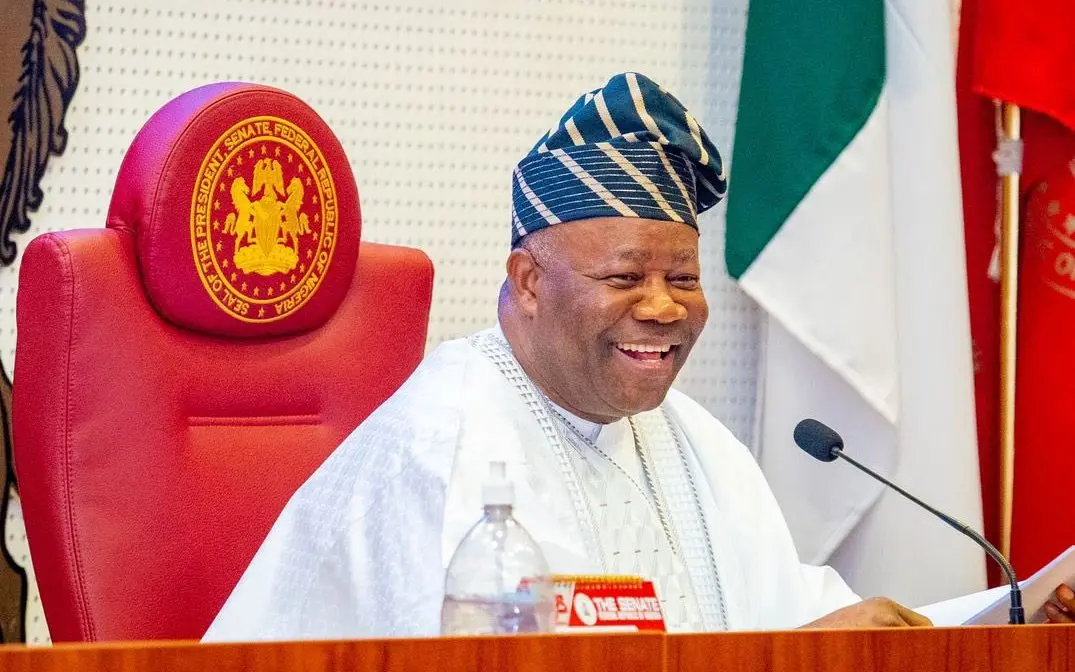
By Adedapo Adesanya
The Senate has constituted a seven-man committee to harmonise contributions and opinions on the Electoral Act Amendment Bill, 2026, with a mandate to present a consolidated report to the chamber next Tuesday.
The decision followed over two hours of consideration of the bill’s provisions during a closed-door session on Thursday.
The committee is chaired by the Chairman of the Senate Committee on Judiciary, Human Rights and Legal Matters, Mr Niyi Adegbomore.
Other members are Senators Adamu Aliero, Aminu Tambuwal, Adams Oshiomhole, Danjuma Goje, Tony Nwoye, and Titus Zam.
The group has three days to conclude its assignment and submit its report for consideration at the next plenary session scheduled for next week.
The Senate on Thursday commenced consideration of the Electoral Act 2022 (Repeal and Re-enactment) Bill 2026, moving into a closed-door session to review documents submitted by the Chairman of the Senate Committee on Electoral Matters, Mr Simon Lalong.
The Electoral Act (Repeal and Enactment) Bill, 2025 would expand voter participation, safeguard against electoral fraud, and strengthen institutional capacity of the Independent National Electoral Commission (INEC).
The closed session was convened to allow lawmakers to thoroughly examine the proposed amendments and supporting documents before engaging in further legislative debate on the bill.
This development comes after the upper chamber deferred consideration of the bill on Wednesday, giving lawmakers time to prepare for a detailed review.
Although the House of Representatives has already passed the bill, Senate President Senator Godswill Akpabio underscored the need for thorough scrutiny, given the bill’s implications for the nation’s electoral process.
“This is a very important bill, especially as it is election time. We must take our time to ensure justice is done to all, so that we do not end up at the tribunal,” he said.
According to the committee’s findings, a clause-by-clause analysis of the bill indicates that enacting the legislation would leave Nigerians with an enduring legacy of electoral integrity, enhance transparency, and boost public confidence.
The bill contains more than 20 key innovations distinguishing it from previous electoral frameworks, including provisions recognising the voting rights of prisoners and mandating INEC to register eligible inmates in correctional facilities nationwide.
It also prescribes sanctions for vote-buying ranging from a fine of N5 million to a two-year jail term, as well as a 10-year ban from contesting elections. It also recommends mandatory jail terms and higher fines for offences such as result falsification and obstruction of election officials.
Others include standardising delegates for indirect party primaries to prevent arbitrary determination of delegate criteria by party leaders, while addressing perennial funding challenges to the Independent National Electoral Commission (INEC) by mandating the release of election funds at least one year before polling day.
General
Dangote Cement Ibese Plant Launches Safety FairPlay Initiative
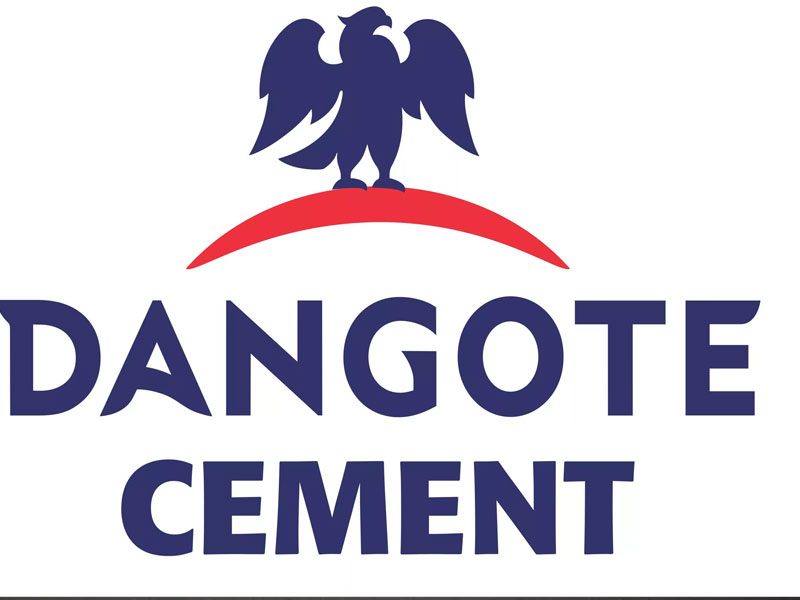
By Modupe Gbadeyanka
A Safety FairPlay initiative designed to drive behavioural change and cultural shift towards safety conducts among its employees has been launched by the Ibese Plant of Dangote Cement Plc.
This programme will drive lasting behavioural and cultural change through an equitable and transparent framework that promotes safe conduct. Built on three core pillars—Recognition, Correction (Coaching) and Discipline.
It rewards positive safety behaviour, ensures consistency in addressing at-risk actions, and encourages open reporting of incidents, near-misses and errors, the company said in a statement on Thursday.
The scheme will be replicated at all the plants of Dangote Cement, marking a significant milestone in strengthening the Company’s safety culture, the organisation added.
The pilot launch of this policy recorded impressive participation from both the management and employees, thus underscoring a shared commitment to safer work practices.
The Technical Director of the cement giant, Mr Anandam Duraisamy, emphasized the strategic importance of the initiative to the business and called on employees to champion a safety culture anchored on fairness, accountability, recognition, and continuous improvement.
He noted that the Safety Fairplay marks a defining moment in the company’s journey toward building a workplace where safety is not just a policy, but a shared mindset—an everyday habit that defines who we are and how we work. We are here to launch an initiative that aims to transform not only what we do, but how we think, act, and respond when it comes to safety.
“Safety FairPlay is about building trust, consistency, and accountability in how we manage safety. When people know that safe behaviour is recognised, risky actions are fairly addressed, and everyone is treated equitably, safety becomes a shared responsibility and a true part of our culture.
“This initiative is about behavioural and cultural change. It recognises that true safety excellence goes beyond equipment, procedures, or compliance; it begins with people-our attitudes, our choices, and our willingness to look out for one another.
“Every incident prevented, every risk spotted, and every safe action taken strengthens our organisation. And that strength comes from you—from each member of our workforce embracing safety as a personal responsibility and a collective value,” he stated.
Also speaking, the Ibese Plant Head of Health, Safety and Environment (HSE), Mr Elvis Akalusi, commended the management for driving the programme and applauded employees for their enthusiastic embrace of the initiative.
He affirmed that the Safety FairPlay Initiative would be fully embedded into the plant’s daily operations, with the full collaboration of all heads of departments.
“This initiative will offer the tools, coaching, recognition, and accountability needed to help each of us make safer decisions. But its success depends on our shared commitment—our courage to consistently do the right thing, even when no one is watching.
“Let us approach this new chapter with open minds and a determination to improve. Let us build a culture where speaking up is encouraged, learning is continuous, and mistakes become opportunities to grow—not reasons for fear,” he stated.
General
Navy Unveils Roadmap for Nigeria’s 2.5mbpd Crude Output Target

By Adedapo Adesanya
The Nigerian Navy via its Central Naval Command has unveiled a fresh security coordination roadmap with oil majors and maritime stakeholders to ensure security enforcement aligns with plans to boost the country’s crude oil production to 2.5 million barrels per day.
The renewed push followed back-to-back high-level engagements held this week between the Central Naval Command, major oil exploration companies, and key maritime industry players, which stakeholders agreed could be delivered if crude oil theft, sabotage, and operational disruptions across the Niger Delta are decisively addressed.
Flag Officer Commanding, Central Naval Command, Rear Admiral Suleiman Ibrahim, told participants that maritime security remains critical to Nigeria’s economic survival and energy ambitions.
“Maritime security is a collective responsibility,” Rear Admiral Ibrahim said.
“Sustainable outcomes can only be achieved through close collaboration and mutual understanding between the Nigerian Navy and you, our industry partners whose assets, personnel, and investments we protect.”
During the engagement with oil executives, participants jointly affirmed that President Bola Ahmed Tinubu’s 2.5m bpd mandate is “doable and achievable”, provided security agencies and industry operators align operations, intelligence sharing, and response strategies.
Rear Admiral Ibrahim stressed that the Navy’s role is to create an enabling environment for uninterrupted oil and gas operations, assuring stakeholders of stronger protection for offshore and onshore assets within the Command’s Area of Responsibility.
He also conveyed the full backing of the Chief of the Naval Staff, CNS, Vice Admiral Emmanuel Ikechukwu Ogalla, noting that Naval Headquarters remains committed to deploying the required platforms, assets, and leadership to strengthen maritime security.
“The Chief of the Naval Staff is fully committed to providing the platforms and strategic leadership needed to optimise security deployments across the Central Naval Command,” the FOC said.
According to him, the dual meetings provided an opportunity to reassess the evolving security landscape, review emerging threats, and fine-tune response mechanisms in line with industry realities.
“We welcome frank and constructive engagement,” Rear Admiral Ibrahim added. “Your feedback is vital to improving our operational effectiveness and service delivery.”
According to a statement, industry stakeholders expressed renewed confidence in the Navy’s leadership and ongoing inter-agency cooperation, noting that improved maritime security is already translating into greater operational stability and production recovery.
-

 Feature/OPED6 years ago
Feature/OPED6 years agoDavos was Different this year
-
Travel/Tourism9 years ago
Lagos Seals Western Lodge Hotel In Ikorodu
-

 Showbiz3 years ago
Showbiz3 years agoEstranged Lover Releases Videos of Empress Njamah Bathing
-

 Banking8 years ago
Banking8 years agoSort Codes of GTBank Branches in Nigeria
-

 Economy3 years ago
Economy3 years agoSubsidy Removal: CNG at N130 Per Litre Cheaper Than Petrol—IPMAN
-

 Banking3 years ago
Banking3 years agoSort Codes of UBA Branches in Nigeria
-

 Banking3 years ago
Banking3 years agoFirst Bank Announces Planned Downtime
-

 Sports3 years ago
Sports3 years agoHighest Paid Nigerian Footballer – How Much Do Nigerian Footballers Earn



